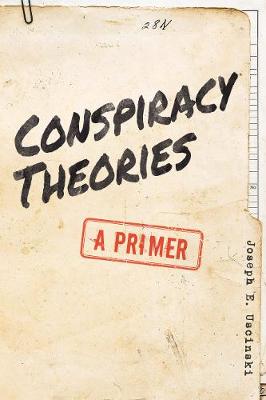Conspiracy theorizing (or what Richard Hofstadter famously called the paranoid style) is an
enduring part of American politics. For such a common feature of the political landscape, there is
little consensus on why conspiratorial beliefs blossom. This is not for want of attention; large
literatures have addressed the phenomenon. For example, some argue that the causes of conspiracy
theories are psychological, stemming from cognitive quirks, authoritarian personality traits, or
psychopathologies. Sociological arguments contend that group dynamics and social status drive
conspiracy theorizing. Political scientists argue that institutional power (or lack thereof) drives
people to adopt conspiracy theories. Philosophers, on the other hand, argue that conspiracy theories
gain traction because of their unique epistemological features, which allow beliefs to prosper without standards of evidence. Each of these views provides valuable insights.
Conspiracy Theories brings together these perspectives for students to evaluate their strengths.
While engaging in rich discussion, Conspiracy Theories rigorously analyzes the most current arguments and evidence while providing numerous real-world examples so students can contextualize and visualize the current debates. Each chapter addresses important current questions, provides conceptual tools, defines important terms, and introduces the appropriate methods of analysis. Each chapter concludes with a list of important terms, questions to spark class discussion, and suggestions for further reading. The chapters will have boxed text to highlight important points with anecdotes and quotes.
- ISBN10 1538121212
- ISBN13 9781538121214
- Publish Date 15 January 2020
- Publish Status Active
- Publish Country US
- Publisher Rowman & Littlefield
- Imprint Rowman & Littlefield Publishers
- Format eBook
- Pages 170
- Language English
